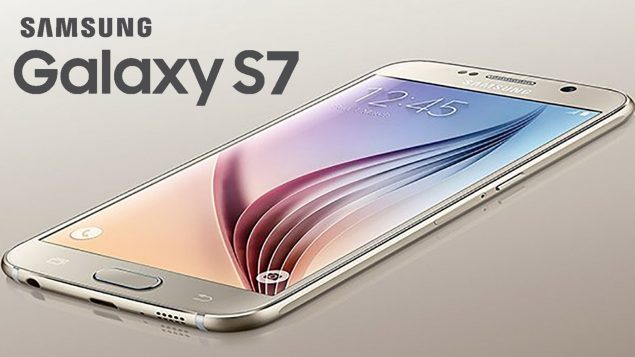Samsung, safety regulators officially recall about 1 million Galaxy Note 7 phones
CNBC.com
The U.S. Consumer Product Safety Commission officially recalled the Samsung Galaxy Note 7 in a Thursday announcement.
The recall will include about 1 million of the premium mobile phones because of serious fire and burn hazards, CPSC chairman Elliot Kaye said at a press conference. Replacement devices should be available at most retail locations no later than Sept. 21, Samsung said.
“I am urging all consumers to take advantage of this recall right away,” Kaye said. Consumers can either get a replacement or a refund, from their carrier or directly from Samsung, Kaye said.
While all the Samsung Galaxy Note 7 phones are subject to recall, consumers can look at a special code etched on the bottom of the back of their smartphone, according to Kaye. Plugging that number into Samsung’s website will determine whether the phone is subject to a replacement or a refund in the United States.
About 97 percent of the Galaxy Note 7 phones sold in the U.S. should qualify for refund or replacement, he said. The Note 7 with a new battery cell is safe, according to a third party expert, Samsung’s U.S. president said.
“With battery cell defects in some of our Note 7 phones, we did not meet the standard of excellence that you expect and deserve. For that, we apologize, especially to those of you who were personally affected by this,” Tim Baxter, president of Samsung Electronics America, said in a statement. “To those of you who love the Note — the most loyal customers in our Samsung family — we appreciate your passion and your patience … we will work every day to earn back your trust through a series of unprecedented actions.”
The announcement follows last week’s Consumer Product Safety Commission warnings that users should stop using the devices and turn them off because of the threat of a battery fire.
In the Galaxy Note 7 smartphones purchased between Aug. 2016 and Sept. 15, 2016, the lithium-ion batteries from a certain supplier can overheat and catch fire, the CPSC said. Samsung has received 92 reports of the batteries overheating in the U.S., including 26 reports of burns and 55 reports of property damage, including fires in cars and a garage, the agency said in a statement.
Any consumers seeing signs of charring or overheating on their phones should contact CPSC and Samsung, and any necessary emergency services, Kaye said.
Following the recall, the U.S. Department of Transportation strengthened an earlier Federal Aviation Administration warning by ordering airline passengers not to bring Samsung Galaxy Note 7 phones on planes unless they keep them turned off and don’t charge them during the flight, the Associated Press reported.
The Wall Street Journal and Reuters originally reported plans to recall the phone.
The CPSC said in a statement last week it was working with Samsung to announce an official recall of the devices. Samsung had already announced a replacement program where users could exchange their current Note 7 device for a new one, pending CPSC approval.
Consumers can also exchange a current Note 7, and any Note 7–specific accessories, for a Galaxy S7 or Galaxy S7 Edge with a refund of the price difference. Participants in the exchange program can also get a $25 gift card or bill credit.
Or, they can now opt for a refund of the device.
But after Samsung said it would recall the 2.5 million units of the premium smartphone two weeks ago, critics have argued the recall has been “anything but smooth,” and “dogged with conflicting information,” lacking a clear message.
In the United States, the CPSC requires companies to notify it of defects and to coordinate public notification of recalls, The New York Times reported. But Samsung issued the news release about the replacement program itself, without waiting to coordinate with the commission, the Times reported.
The delay in announcing the official recall involved “making sure we get the documents we need to provide that independent verification to consumers that they know the remedy that the company is providing is legitimate,” Kaye said.
He said in general, it’s not a recipe for a successful recall for a company to go out on its own, and anyone who does so “needs to have more than their phone checked.”
“And that’s an important point of why it’s so important that companies do come to us, because it works out better for the company,” Kaye said. “It’s a cleaner, more efficient recall that is smoothed out, and it also gives consumers the benefit of knowing … that they don’t have to go through further hassles.”
Baxter said that Samsung notified the CPSC of the potential defect and then issued the global directive to stop sales immediately. Baxter said the company has already exchanged over 130,000 units, a “fast and meaningful start.”
“Our collaboration with the CPSC to fast-track a voluntary recall in the U.S. addresses safety concerns by ensuring we reach Note 7 owners quickly to exchange their devices,” Baxter said in a statement.
The reports of exploding batteries on Samsung’s Galaxy Note 7 are “the biggest nightmare that anybody can think of in terms of phones,” Sree Sreenivasan, New York City’s new chief digital officer, told CNBC’s “Squawk Alley” on Monday.
“I can’t think of a worse situation,” Sreenivasan said. “And I think what the company has to do is be upfront about it and be very clear about how it will fix the problem, what happened and how it will work. Because they were hoping this was the best phone that’s ever been released, and in fact, it’s going to go down as one of the worst…. It’s going to be very scary for Samsung.”
— Reuters contributed to this report.


